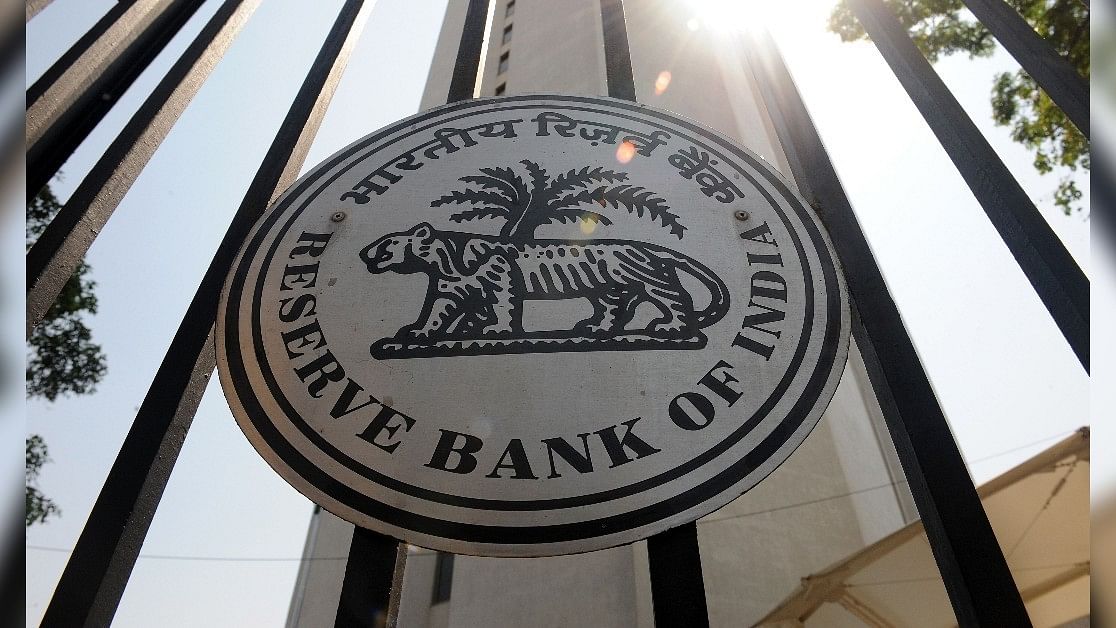
The Reserve Bank of India (RBI) logo.
Credit: Reuters File Photo
The Reserve Bank of India’s upbeat growth estimates for the world’s fastest-growing major economy is causing both confusion and concern among economists.
The central bank has stuck to its forecast that India’s economy will expand 7.2 per cent in the year ending March 2025 despite recent evidence showing activity is starting to taper off.
The RBI’s outlook is far more optimistic than the 6.5 per cent-7 per cent growth projected by Prime Minister Narendra Modi’s government. Investment banks like Goldman Sachs Corp. have already downgraded growth projections to as low as 6.5 per cent.
The RBI’s bullishness is underpinned by its view that rural spending is improving and private investment is picking up.
Economists, though, point to sluggish urban consumption and weakening exports as a worry. If those warning signals aren’t heeded in time, the RBI runs the risk of keeping monetary policy too tight, undermining growth further, they say.
“The RBI’s forecast is higher than what a margin error around market forecast would allow,” said Dhiraj Nim, an economist at Australia & New Zealand Banking Corp. “I don’t think the overall macro mix has evolved very encouragingly in the last couple of months” to support the central bank’s predictions, he said.
Credit: Bloomberg
From sales of cars and coffee to manufacturing, there has been a downturn in several sections of the economy. India’s factory activity had been softening since July, although it registered an uptick this month. Passenger vehicle sales fell for two months in a row in September, while air travel has declined three out of the four months since June.
The lingering spell of weak demand for consumer goods in cities has hurt profits of some of the biggest companies in the country, like Hindustan Unilever Ltd., which makes everything from soap to tea. “The pattern is quite clear that urban growth has trended down in recent quarters,” Rohit Jawa, the company’s chief executive officer, said in an earnings call on Wednesday.
Muted economic activity comes at a time when the RBI has kept its key interest rate unchanged for almost two years. Governor Shaktikanta Das said earlier this month an interest rate cut at this stage would be “very, very risky” and he’s in no hurry to join the wave of easing by global policymakers.
“There’s a risk of a policy misstep if you keep rates higher for longer,” said Teresa John, an economist with Nirmal Bang Institutional Equities, projecting a 6.6 per cent expansion for the year. Monetary policy works with a lag, so the more time the RBI takes to cut rates, the greater time it will take to spread through the economy, she said.
Festival Season Sales
The RBI had expected a revival in demand during the current festival season — a three-month long spending period that culminates with the Hindu-festival of Diwali this week, and which typically makes up 20 per cent -30 per cent of some companies’ annual sales.
“There is hope that this Diwali will be lit, but the light might not last several quarters,” said Achala Jethmalani, an economist at RBL Bank Ltd. “Even if there is a jump in consumption during the festive season, it is expected to be seasonal and the momentum could possibly fade” in later months, she said.
Das acknowledged that the festival season demand is showing a “mixed picture,” according to an interview to CNBC-TV18 channel broadcast Monday. However, he defended his growth outlook, saying “the so-called slowdown in some areas is outweighed by the positives,” citing strong agricultural output and a rebound in rural spending.
Even though momentum is picking up in rural markets after above-normal monsoons and a bumper crop, it’s still not enough to make up for the bleakness in cities, where consumers spend much more.
“Rural is recovering from where it was,” Sunil D’Souza, managing director of Tata Consumers Products Ltd., told investors after the company’s earnings. “But it is still not at the stage where it gives us a double-digit volume growth.”